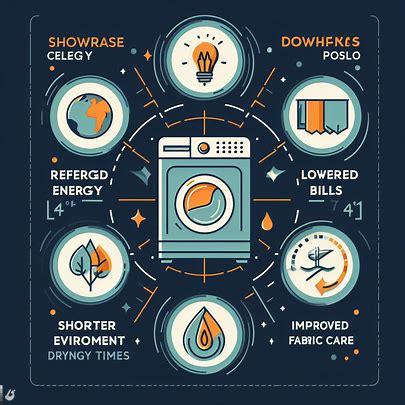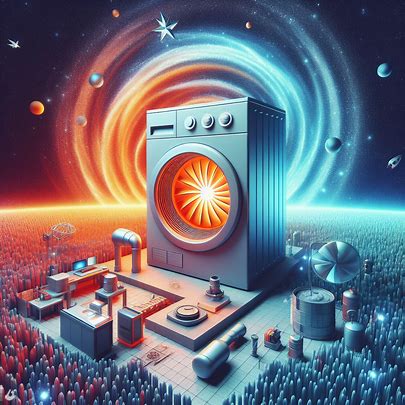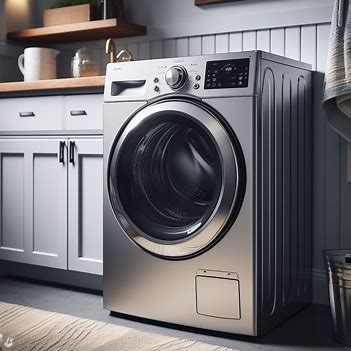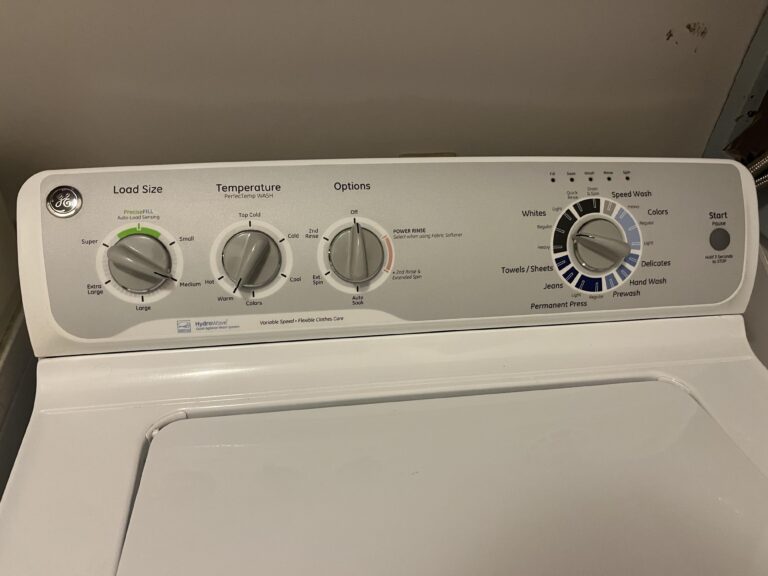The Importance of Gas Dryer Efficiency: A Guide to Energy Savings
In today’s environmentally conscious and cost-aware society, the efficiency of household appliances plays a crucial role in both reducing our carbon footprint and saving money. One such appliance that significantly impacts both aspects is the gas dryer. In this article, we will explore the importance of gas dryer efficiency, discussing its environmental and financial benefits.
What is Gas Dryer Efficiency?
To appreciate the benefits of energy-efficient gas dryers, it’s essential to understand how they work and how efficiency is measured. Gas dryers utilize natural gas or propane to generate heat, which is then used to evaporate moisture from clothes. The efficiency of these appliances is measured in terms of Energy Factor (EF), representing the amount of energy used to dry a load of clothes.
Energy Star Certification
One reliable indicator of gas dryer efficiency is the Energy Star certification. Products with this label meet strict energy efficiency guidelines set by the U.S. Environmental Protection Agency (EPA). Choosing an Energy Star certified gas dryer ensures that it meets or exceeds these standards, guaranteeing energy savings and reduced environmental impact.
Factors Influencing Gas Dryer Efficiency
Several factors influence the efficiency of gas dryers. The type of dryer, sensor technology, and moisture control features all play a role in determining how well an appliance performs. For example, ventless dryers are known for their energy-saving capabilities, as they recirculate warm air instead of venting it outside. Advanced sensor technologies can detect the moisture levels in clothes, preventing over-drying and further improving efficiency.

what are the Benefits of Energy-Efficient Gas Dryers?
Investing in an energy-efficient gas dryer can result in a range of advantages beyond the initial cost savings. Let’s explore some key benefits:
- Reduced Energy Consumption and Lower Bills:
- Energy-efficient gas dryers consume less energy, leading to lower electricity bills over time.
- Decreased Environmental Impact:
- Lower energy consumption translates to reduced greenhouse gas emissions, contributing to a greener planet.
- Shorter Drying Times:
- Energy-efficient models often come with advanced technologies that shorten drying times, saving both time and energy.
- Improved Fabric Care:
- Gentle drying cycles and precise moisture control contribute to better fabric care, prolonging the life of clothes.
Environmental and Financial Benefits
Using energy-efficient gas dryers holds a twofold advantage: it helps preserve the environment and saves consumers money in the long run. Traditional gas dryers can be notorious for their energy consumption, contributing to higher greenhouse gas emissions and increased electricity bills. In contrast, energy-efficient models are designed to address these issues, providing a more sustainable and cost-effective solution.

How to Choose an Energy-Efficient Gas Dryer?
When shopping for a gas dryer, it’s crucial to consider several factors to ensure optimal efficiency and performance.
what are the Tips for Choosing an Energy-Efficient Gas Dryer:
- Energy Star Certification:
- Prioritize models with the Energy Star label for guaranteed energy savings.
- Moisture Sensing Accuracy:
- Look for dryers with high moisture sensing accuracy to prevent over-drying.
- Multiple Drying Cycles:
- Opt for models with multiple drying cycles to accommodate different fabrics and loads.
- Energy Consumption Ratings:
- Compare energy consumption ratings to make an informed decision.
- Annual Operating Costs:
- Consider the long-term operating costs, factoring in energy efficiency and maintenance requirements.
what are the Maintenance Tips for Gas Dryer Efficiency?
Ensuring the continued efficiency of your gas dryer involves regular maintenance and proper usage.
Maintenance Tips:
- Clean the Lint Trap:
- Regularly clean the lint trap to maintain optimal airflow and heat transfer.
- Proper Venting:
- Ensure proper venting to prevent moisture buildup and potential mold growth.
- Avoid Overloading:
- Avoid overloading the dryer to prevent overheating and energy inefficiency.
- Use Fabric Softeners Sparingly:
- Use fabric softeners sparingly to reduce static cling and improve drying efficiency.
FAQ gas Dryer Efficiency
How Does a Gas Dryer Work?
Understanding how a gas dryer works is essential for maximizing its efficiency. Gas dryers use natural gas or propane to generate heat, which is then used to evaporate moisture from clothes. For a detailed breakdown of the process, you can refer to resources like Appliance Solved’s guide on gas dryer functionality.
Gas Dryer Installation
When setting up a gas dryer, a proper gas dryer installation is crucial for safety and functionality. This involves connecting the dryer to the gas line securely. Appliance Solved provides insights into the correct procedures for a gas dryer hookup, ensuring users follow best practices.
Can You Convert a Gas Dryer to Electric?
For those considering a switch from gas to electric, the question of converting a gas dryer to electric might arise. Appliance Solved’s resource addresses this query, providing information on the feasibility and steps involved in making such a conversion.
Gas Dryer Outlet
Understanding the specifications of a gas dryer outlet is essential during installation. This includes the type of outlet required and its electrical specifications. Appliance Solved offers guidance on the correct outlet configurations for different gas dryers.
Gas Dryer Smells Like Gas
Experiencing an odor of gas while using a gas dryer raises concerns. Appliance Solved’s guide on why a gas dryer smells like gas provides insights into potential causes and the necessary steps to address the issue promptly.
Gas vs. Electric Dryer
The debate between gas vs. electric dryers is common when choosing a new appliance. Appliance Solved compares the two options, considering factors such as energy efficiency and operating costs, helping consumers make informed decisions.
Are Gas Dryers Dangerous?
Safety is paramount, and concerns about the safety of gas dryers may arise. Appliance Solved addresses this question by exploring whether gas dryers are dangerous, providing information on safety features and precautions.
Gas Dryer Lifespan
Understanding the lifespan of a gas dryer is crucial for budgeting and maintenance planning. Appliance Solved’s resource discusses factors affecting the longevity of gas dryers and tips for extending their lifespan.
Gas Dryer Components and Parts
For those interested in the inner workings of a gas dryer, Appliance Solved offers insights into gas dryer components and parts. This comprehensive guide details the key elements that contribute to the appliance’s functionality.
Gas Dryer Not Heating
A common issue that users may encounter with gas dryers is the Gas Dryer Not Heating. This can be frustrating, as the primary function of a dryer is to provide efficient and timely drying of clothes. Several factors can contribute to a gas dryer not producing heat, and understanding these issues is key to resolving the problem.
Can Gas Dryers Explode?
The concern of whether gas dryers can explode is a valid one that often arises due to misconceptions about gas appliances. It’s essential to address this issue to ensure users understand the safety features and precautions associated with gas dryers.
Conclusion
In conclusion, the importance of gas dryer efficiency cannot be overstated. By choosing an energy-efficient model and following proper maintenance practices, consumers can contribute to a sustainable future while enjoying financial savings. Making informed decisions when purchasing and using gas dryers is a small yet impactful step toward a more energy-efficient and environmentally friendly household.
For more information on energy-efficient gas dryers and related topics, consult resources such as the Energy Star website







